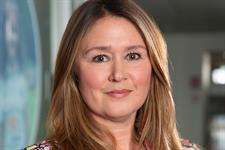Barnardo’s has appointed one of its joint interim chief executives to the permanent role.
Lynn Perry, who has been at the charity for 13 years, has been its corporate director for children’s services since 2019 and took up the top job on a permanent basis yesterday.
She has been co-interim chief executive of the charity with Michelle Lee-Izu since Javed Khan stepped down for personal reasons last summer.
A spokesperson for the charity said Lee-Izu would support the transition and return to her substantive post of corporate director, development and innovation, by 1 May.
Perry, who joined Barnardo’s as assistant director of children’s services before being promoted to regional director, north west, in 2013, previously worked in operational and leadership roles at The Children’s Society and in local authority roles including youth offending, education and youth services.
She was appointed MBE in 2007 for services to youth justice in north-west England.
John Bartlett, chair of Barnardo’s, said: “During Lynn’s service at the charity she has demonstrated her phenomenal grasp of the issues affecting vulnerable children and families, as well as her capacity for innovation and creativity.
“Lynn is deeply committed to driving forward the charity’s strategic direction, with a strong emphasis on culture and inclusion, and we believe the charity will continue to go from strength to strength in her immensely capable hands.”
Perry said: “Having served the charity for more than 13 years, in several different roles, I am incredibly proud of the difference we make to the children and families who need us most, and I have deep respect and admiration for the thousands of colleagues and volunteers who make our work possible.
“Barnardo’s has achieved some amazing things over more than 150 years.
“Today, we know that children’s needs are growing and changing fast, exacerbated by the pandemic, and we must continue to innovate and adapt, so we can continue to respond to challenges like children’s mental health, new risks to their safety on- and offline, the growing number of children going into local authority care and the specific needs of vulnerable and diverse groups, including refugees.”
